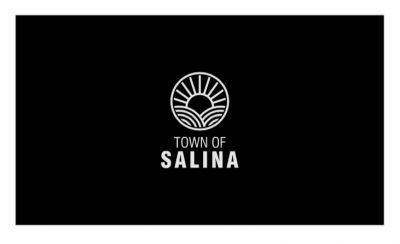FAQ
To serve you better, we've assembled a list of our residents' most frequently asked questions. If you don't find your answer here, feel free to contact us.
Frequently Asked Questions
Town Court
Where can I pay my fines?
Where and when is Court?
The court is located at City Hall, 321 W. Ferry, at 5:00 PM on the 1st Tuesday of each month, please look at the scheduled court dates.
Salina Police Department
When should I call 9-1-1?
Please call to report any of the following: a medical emergency; a fire; a crime; any activity that is harmful to a person, animal or property; or any suspicious activity that might result in harm to any person, animal or property. You can also Text-to-911 service in emergency circumstances where a voice call is not possible or safe.
When NOT to call 9-1-1?
Please decline from calling to report any of the following: power outages or water leaks; downed tree limbs not presenting an immediate threat to life or property; loud noises or other nuisances (especially during peak times, such as holidays); to pay a ticket; to get a ride; to receive driving directions; or as a prank.
Our non-emergency number 918-434-5780 can assist with directing you to the proper company.
What should I do if i am stopped by a Police Officer?
We simply ask for your cooperation, candor, and courtesy in bringing a resolution to the contact.
Please realize that our Officers are trained to approach situations in a particular manner to ensure the public's safety as well as their own.
Truthfulness is essential. Knowingly providing false information to Law Enforcement personnel may lead to prosecution and may prolong the contact.
While a person who believes that providing information may incriminate them can refuse to provide information under the protection of the 5th Amendment, witnesses to crimes are not offered this protection
What happens if I am issued a citation?
If you are issued a citation, an Officer believes that you have committed a violation or misdemeanor offense. The issuance of the citation does not mean, in fact, that you are guilty of the offense. When the citation is issued, you will be asked to sign the citation. Your signature is not an admission of guilt. It is merely a promise to appear in court on the court date the Officer provides to you. The court date provided is merely an appearance date. The purpose of the appearance date is to provide the citizen an opportunity to pay the fine or set the case for court. Trials are not conducted on this date.
If you choose, you may pay the fine before the court date and are generally not required to attend court once the fine is paid; however, in some misdemeanor cases, your attendance is required in court whether you pay the fine or not. You may contact the Municipal Court Clerk at 918-434-5026, to determine if your appearance is compulsory. If you choose not to pay the fine before the court date, you must appear in court on the court date. You will have the opportunity to appear before a judge and plead guilty or not guilty to the charge. If you plead not guilty, a trial date will be set. You will have the opportunity to retain a lawyer or you may choose to represent yourself in the case.
If you have any questions regarding court procedures or if special needs arise, you should contact the Court Clerk's Office.
What happens when my car is towed?
SPD utilizes several tow companies within Mayes County that are on a rotational call schedule. When a car is towed, the owner is liable to pay the towing company fees.
Disputes regarding fees and property within vehicles are civil matters between the towing firm and the owner.
In the event you do not know the name of the company towing your vehicle you may contact the Salina Police Department at 918-434-5780, to obtain this information.
How do I obtain an Accident or Incident Report?
Incident reports that are not part of ongoing investigations are available for public inspection. Certain information protected by privacy laws will be redacted prior to review/release.
Please contact the Town of Salina at 918-434-5027 for copies of accident &/or incident reports that are open to the public through an open records request.

